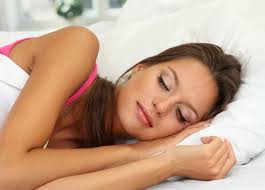The art of quality sleep
28/10/14 09:37

Do you realise that recent studies have shown that hypnosis and hypnotherapy can help up to two-thirds more adults sleep deeper and longer than with those who induce sleep naturally.
"There have been many reports that hypnosis can be a good thing for promoting sleep," said study co-author Bjorn Rasch, a professor with the department of psychology in the division of biopsychology and methods at the University of Fribourg in Switzerland.
In this newer sleep study scientists have been carefully exploring the effect of hypnosis on so called ‘deep sleep’ or REM (Rapid Eye Movement) sleep. At this level of sleep the brain’s frequency is much slower and "often correlates with the most restorative sleep -- it's a time for your brain to process and rejuvenate from the challenges of the day," explained Dr. Kim Hutchison, assistant professor of neurology and sleep medicine at the Oregon Health and Science University in Portland.
The study group aged between 18 and 35 based in Switzerland were exposed to a variety of audio recordings of about 13 minutes in length. Some provided a hypnotic suggestion to sleep deeper, while others were designed to be neutral in content..
For each experiment, the participants were outfitted with electrodes to monitor brain-wave activity and sleep patterns. The subjects were allowed to fall asleep during or after the audio feeds, and all were woken up after they had spent a total of 90 minutes sleep.
The sleep team were also able to observe that slow-wave activity during the deep sleep phase was "significantly enhanced" following hypnosis. This suggests that not only does hypnosis boost deep sleep quantity, it may also improve deep sleep quality.
"I have to emphasise that we did not focus on sleep-disorder patients," said Rasch. "These were all healthy people. So while our findings are really promising, we do not yet have proof that hypnosis will help people who suffer from sleep disturbances. I would say it would. But it's not yet proven," he added.
"I have found hypnosis can be helpful, even for non-susceptible patients," she said. "Because it gives them something to focus on, and helps them to relax and quiet their mind before sleeping."
Hutchison added that, "there is anecdotal evidence that the relaxation achieved can help improve sleep quality. In fact, I have been recommending sleep hypnosis phone apps for about the past five years."
Findings from the study were published this month in the journal Sleep.
Want to learn effective strategies to help you develop more quality based sleep? Here at Cumbria Hypnosis we use an array of different psychological tools to help anyone with sleeping disorders. Find out more here or try our popular Mind-Sync Sleep Easy mp3 for a peaceful and rewarding night’s sleep.
David Faratian (NLP Practitioner and Clinical Hypnotherapist)


